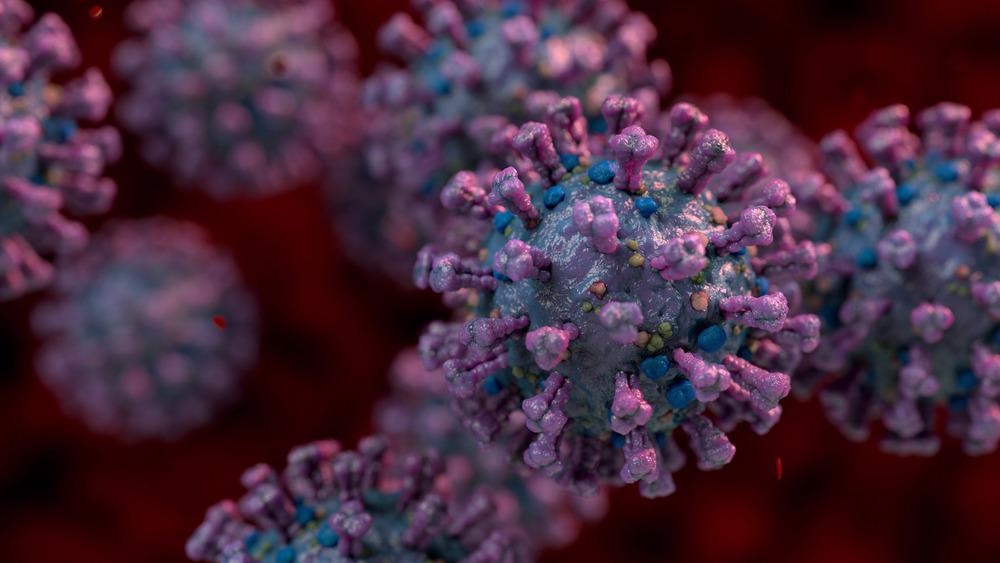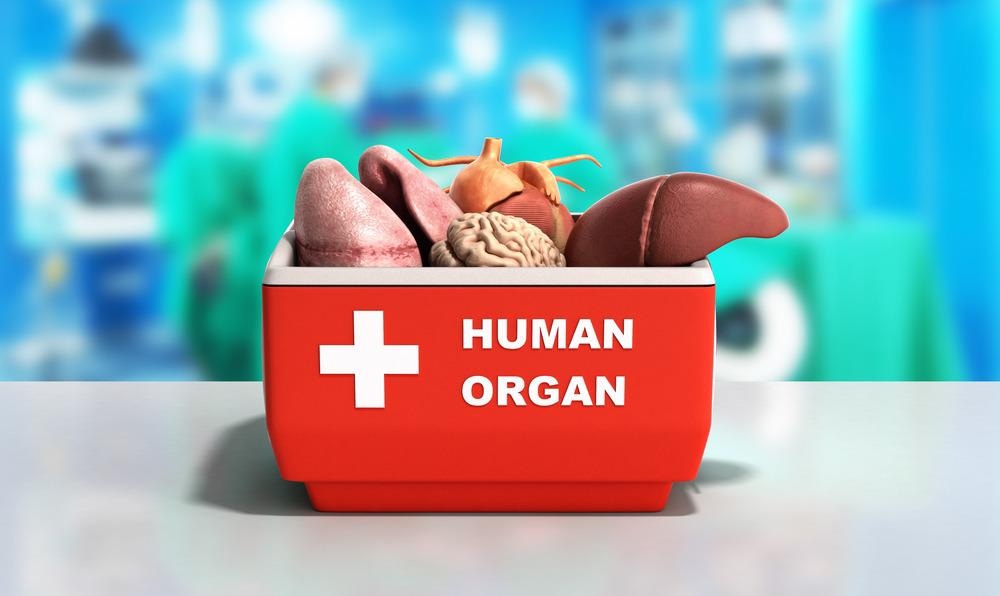The retrovirus coronavirus disease 2019 (COVID-19) has had a profound impact on all facets of the medical industry. Media and medical experts alike have held a keen focus on, and have requested the aid of otolaryngologists, virologists, and general respiratory equipment. However, many auxiliary branches of medicine are being affected by the COVID-19 virus.
One such branch is organ transplantation, a topic that has not been granted as much coverage as others; yet it remains a fundamental pillar of western medicine. Recent data accrued from medical financial analysts suggest that the rise of the pandemic has had an undesirable effect on the rate of organ transplantation, be it living or deceased.

Image Credit: Ninc Vienna/Shutterstock.com
Why has Organ Transplantation Not been Discussed in the Media?
One reason why this topic has not garnered as much attention as others is because the quantitative impact that COVID-19 has had on transplantation remains elusive. No exact numbers have been calculated or reported. The most likely culprit could be limited staff. With researchers focusing on cures, treatments, and vaccines, less manpower is being allocated toward researching tissue compatibility, and antibody suppression. In addition, there seems to be a lack of testing regarding this experimental front.
In addition, we see that protocols for organ transplantation are different across many healthcare domains across different countries. This results in a lack of collected, well-sourced data because there exists no structured data register. Though this may be, all published material leads to the conclusion that COIVD-19 has globally jeopardized organ donation. With 106,000 individuals currently on the waitlist for organ donations, one can easily grasp the scale of this industry. Despite this massive demand for viable organs, preliminary data posits that massive reductions in transplantation have occurred worldwide.

 How has COVID-19 Changed the Delivery of Care?
How has COVID-19 Changed the Delivery of Care?
How Does COVID-19 Effect the Organs?
After assaying this disease for the better part of 2 years, it has been demonstrated that COVID-19 can cause chronic damage to most of the body’s vital organs. While the public associate this illness with complications of the respiratory system, organs like the heart, liver, kidneys, and brain can likewise be adversely affected.
The disease itself will begin at the lungs, given its airborne nature. Within the alveoli of the lungs lay the main entry point, the angiotensin-converting enzyme 2 or (ACE-2) receptor. Though a large concentration of these sites is found in the alveoli, ACE-2 receptors are widespread and cover most vital organs. The migration of the viral template to these receptors can lead to the transduction of viral genomic code into host cells; most notably, the neurons.
Once inside, the SARS spike protein-ligand has bound to the ACE-2 receptor. At this point, the cell has been compromised and it will begin the viral transcription and translation process on site. The phenotypic response to this would be oxygen starvation, and in some rare cases, can lead to the development of meningitis or encephalitis.
Is it Possible to Apply for Organ Transplantation if One has COVID-19?
It is well known that some prominent conditions would inhibit organ donation, such as active cancer, or a severe systemic infection like COVID-19. With that being said, if a living or deceased donor has recovered from COVID-19, then both are eligible for donation. This was not always known, however, and at the height of COVID, donations of vital organs were significantly impacted.
One case of a prominent transplant decrease can be observed within the Hartford Hospital in Connecticut, where living donor transplants were completely closed off and transplant rates were effectively zero. Though the pandemic has become progressively more manageable, these critical donations are still too gradual. Hartford Hospital was once receiving deceased donation rates ranging from 25-35 a week, presently this number has dropped to 5 per week.
If someone has a less aggressive variant of COVID-19, or that individual appears to be asymptomatic, some centers will accept COVID-positive donors. Organs are continually in high demand. For this reason, those that test positive via nasopharyngeal tests may donate, so long as they test negative for other respiratory illnesses.

Image Credit: NosorogUA/Shutterstock.com
The Virology/Biochemistry Associated with COVID-19 Organ Transplantation
The ACE-2 pathway undergoes an immediate change once the retrovirus begins replication and enters the cell via clathrin-mediated endocytosis. The scientific community recognized this as a surrogate marker and has assayed cell lines and tissue samples for the presence of ACE-2 under varying conditions. It has been recorded that in Wistar Rats, B6 mice, and other staple animal models, having a partial hepatectomy (liver transplant) increases the expression of ACE-2 dramatically. The elevation of ACE-2 occurs throughout hepatic regeneration, affecting hepatocyte differentiation and wild-type proliferation. This upregulation of ACE-2 throughout months can lead to greater susceptibility to COVID-19.
One other surrogate marker that can be observed within these COVID-positive patients, is the amount of Gamma-glutamyl transferase in one’s system. The upregulation of this molecule, along with the normal trend of alkaline phosphatase concentration derived from epithelial cells, shows signs of damaged bile ducts attributed to COVID 19.
References:
- Fontana F, Alfano G, Mori G, Amurri A, Tei L, Ballestri M, Leonelli M, Facchini F, Damiano F, Magistroni R, Cappelli G. COVID-19 (2020) pneumonia in a kidney transplant recipient successfully treated with tocilizumab and hydroxychloroquine. Am J Transplant. (7):1902-1906.
- Irving MJ, Tong A, Jan S, Cass A, Rose J, Chadban S, Allen RD, Craig JC, Wong G, Howard K. (2012) Factors that influence the decision to be an organ donor: a systematic review of the qualitative literature. Nephrol Dial Transplant. (6):2526-33.
- Sahin TT, Akbulut S, Yilmaz S. (2020) COVID-19 pandemic: Its impact on liver disease and liver transplantation. World J Gastroenterol. (22):2987-2999.
- IRCCS San Raffaele. (2020) Observational Study Concerning COVID-19 Infection in Transplanted Kidney, Pancreas or Pancreatic Islet Patients, Observational Study: Start Date: May 4, 2020, Completion date: May 18, 2020.
- Uppsala University: mpact of COVID-19 on Patients Treated With Autologous Hematopoietic Stem Cell Transplantation in Sweden - a Retrospective Cohort Study, Observational study: Start Date: April 1, 2021, Completion date: December 31, 2021.
- Kutzler HL, Poulos CM, Cheema F, O'Sullivan DM, Ali A, Ebcioglu Z, Einstein M, Feingold AD, Gluck J, Hammond JA, Jaiswal A, Lawlor MT, Morgan G, Radojevic JA, Rochon C, Sheiner P, Singh JU, Sotil EU, Swales C, Ye X, Serrano OK. (2021) COVID-19 in Solid Organ Transplant Recipients: Observations From Connecticut. Transplantation.
- Triposkiadis F, Xanthopoulos A, Giamouzis G, et al. (2021) ACE2, the Counter-Regulatory Renin-Angiotensin System Axis and COVID-19 Severity. J Clin Med. (17):3885.
Further Reading
Last Updated: Apr 14, 2022